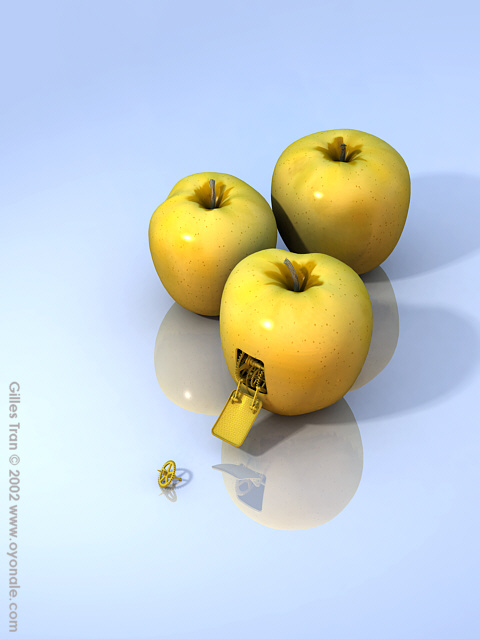





His father, that old wizened man with the oversized head, the half-moon spectacles and the stringy fingers who lived like a recluse in the deep recesses of the shop, that most people believe were actually much larger and darker and scarier than the boutique itself, only to emerge once a day, oily gossamer hanging from his grimy clothes, to lecture publicly his son about the proper attending of customers or to explain in his own knobbly ways the inner workings of the obfuscated devices he was building to the rare but wealthy people who ventured in his underground lair, or, perhaps, like a sperm whale rising to the surface, to breathe fresher air or expose himself to a brighter light, even though ?fresh? and ?bright? were rather uncanny words to portray the shop, his father appeared to have died. I say ?appeared? because there was never a proof of that. One day, he wasn't there, and soon enough a casket entered the shop and came out after a few minutes, carried by swarthy pallbearers and followed by the son, whose face was as forbidding as usual, so that if it weren't for the obviously gloomy shape and the silver handles of the coffin, it could have been the wooden container of some intriguing machine being shipped overseas.
You'd think that the son was identical to his father, and many people who just passed by the shop thought exactly that. Truly, he had some of the distinctive traits of his old man, wore the same nondescript clothes and only came to life while demonstrating his father's devices, as if the humming and whirring of gears resonated within himself, which led to the widespread rumour that the son was nothing but an automata built by his father. The kids called him the ?Tin man? behind his back and sometimes left empty cans of motor oil on the doorstep.
But he wasn't his father. He wasn't an automata. The discrete customers could have testified of this, and so could have several inhabitants of the ill-famed district of the town, who catered to the son's secret but rather mundane debaucheries. He wasn't his father and things started to change.
One of the shop's most popular devices, and the only one that people from the neighbourhood bought on a regular basis, was a mechanical apple, slightly smaller than the real thing. A minute key inserted in a hole in the bottom served to wind it up. A delicate door on the front could be opened with tweezers and revealed the insides of the object, copper entrails of rotating wheels, swaying hammers and uncoiling springs, here and there dotted with rubies that glowed like the scarlet, watchful eyes of wary creatures. People usually left the little door opened, and it could go on for weeks at a time, softly buzzing on a mantelpiece or in a china cupboard. It wasn't unusual for a family to have several of them, painted like regular apples or with more creative designs copied from foreign lands or popular fantasies. Strangely, what it did exactly was never clear. It didn't come with a manual, and nobody could ever offer a plausible explanation for its purpose. Father and the son had resisted to all enquiries. They had even refused large sums of money. Taking the device apart had shed no light on the mystery, only resulting in a pile of even more useless clock parts that could never be turned again into something meaningful.
When the son became the sole owner of the shop, he